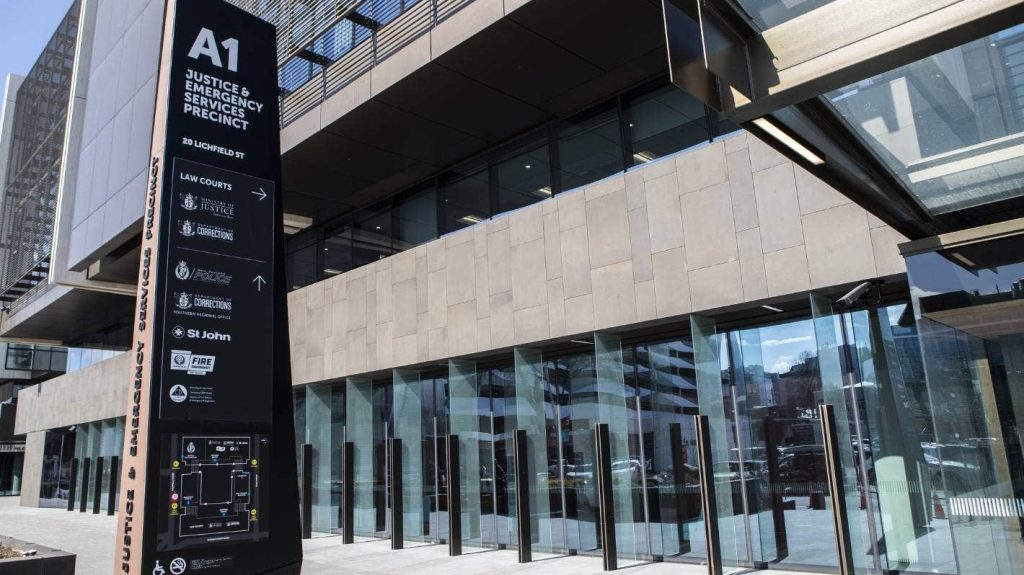Abuse in Care: Police prosecuted fewer than 1 in 10 referred cases
Police have prosecuted fewer than one in ten of the cases referred from the Royal Commission of Inquiry into Abuse in Care.
The sexual harm helpline can be accessed free, 24 hours a day, 7 days a week by phone, text, website, online chat and email.
OPINION: In no other crime is the victim more on trial, more at risk of being judged, of having to explain their actions, than in sexual assault or rape cases.

The cruelty that the judicial system deals out to rape victims, not only in Aotearoa, but around the world, is detailed in Suzie Miller’s modern morality one-woman play Prima Facie, coming to Auckland and Wellington theatres later this month.
In it, Tessa Ensler, a working-class gal with heroic amounts of mongrel, who has defied the British class system and become a barrister, has no trouble defending male sexual offenders, calmly trotting out the usual she-was-drunk-and-therefore-asking-for-it tropes.
Until she has a drunken fling with a colleague and transforms from adversarial inquisitor triumphantly striding the bar, to the lowest rung of the judicial ladder, the victim, begging to be heard, much less believed.
In a 2018 Ministry of Justice analysis, taken over four years, Aotearoa’s sexual assault numbers paint an abiding picture; of the 23,739 sexual assault cases reported to police, 31% made it to court, 11% resulted in a conviction, with a prison sentence imposed in only 6% of cases.
Which goes some way to explain other 2020 survey figures, which show that while one in four will experience sexual assault in their lifetime, 94% of such cases will not be reported to police.
But art, such as Prima Facie, doesn’t need to imitate life when there are rape cases that produce plenty of horrifying realities on its own. The Mama Hooch case, involving rapists Danny and Roberto Jaz, has received the opprobrium and condemnation it deserves.
Its summary of facts serves as a timely reminder that despite all the studies advocating for change, this country’s police and judiciary continue to regard victims as acceptable collateral in the war of sexual politics they preside over.
How else to explain why it took the justice system five years to stop the Jaz brothers when the public had been complaining online about their atrocities for years? Or the police’s decision to allow them to keep working after being first questioned, which allowed Danny to go on to rape a further five women?
And why were the brothers allowed to hide behind suppression orders, while still working, as the number of complainants grew to 34?
Meanwhile, the victims, those who did come forward or those who wearily resigned themselves to their fate and did not, face a lifetime of guilt, shame and overwhelming, incandescent anger.
Because if rape is a useful wartime tool to suppress women – just ask the Russians entering Berlin in World War II or in Ukraine today – it’s equally as effective a tool in peacetime for the patriarchy.
But change is coming, even if it’s at a slow and staggering pace. A 2015 Law Commission report established a specialist sexual violence court pilot in Auckland and Whangārei, which has now become permanent.
At the end of 2021 the Sexual Violence Legislation Act came into force after more than a decade of advocacy, aimed at changing the way the justice system treats survivors and perpetrators.
These changes mean that victims can now give evidence by pre-recorded video, a survivor’s sexual history is only to be discussed if the judge deems it highly relevant, and judges can intervene to dispel questions or rape myths they deem unacceptable.
But if the act represents the system’s best intentions, then the case of Jayden Meyer represents an abrogation of those intentions. Last July, Meyer was sentenced to nine months’ home detention with 12 months of judicial monitoring. His crime? Raping four 15-year-old girls and sexually assaulting another.
Meyer, who committed the rapes when he was 16, pleaded not guilty, maintaining the acts were consensual. The leniency of the sentence enflamed public outrage; a petition with 39,000 signatures did the rounds, protests were held across the country from Mt Maunganui to New Plymouth, Gisborne and Taupō.
The Crown took the rare step of appealing the case based on the leniency of the sentence, despite the fact it didn’t seek imprisonment for Meyer during the original sentencing.
Judge Sarah Fitzgerald in the High Court deemed the sentence “manifestly inadequate”, but rejected the appeal because the Crown had filed it outside the time restriction.
Prosecutors may bray that the Meyer case is the exception to the rule, that in 2022, 1504 women who were sexually assaulted went through the court system, the highest ever, as rape survivors increasingly refuse to accept their fate.
But for every survivor willing to face re-traumatisation, there are perpetrators claiming she was asking for it, with a defence lawyer happy to go along for the ride.
Because if the Meyer cases prove the exception to the rule, then the rules, and the way they’re achieved, remain manifestly wrong. If a system which pits victims against perpetrators, and in which the perpetrator receives better treatment than the victims, then that’s not justice.